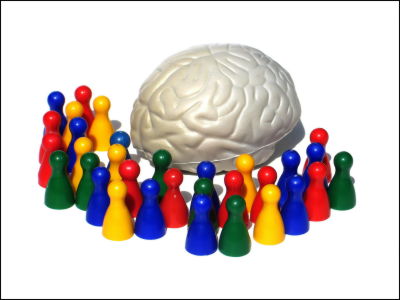Survey results show that people with high cognitive ability have low morals

A study of British people has shown that people with higher cognitive abilities are less likely to endorse moral values, calling into question the often-held belief that people with higher cognitive abilities are more ethically or morally mature.
People with higher cognitive ability have weaker moral foundations, new study finds
Higher cognitive ability linked to weaker moral foundations in UK adults - ScienceDirect
https://www.sciencedirect.com/science/article/pii/S0160289625000339
According to Michael Zakarin and his colleagues at the University of Edinburgh, while several previous studies have linked cognitive ability to moral values, the relationship between the two is unclear. Some studies have shown that high cognitive ability is associated with support for liberal values such as benevolence and fairness, while other studies have shown that individuals with high cognitive ability are less likely to support moral principles rooted in loyalty, tradition, and purity.
Therefore, Zakarin and his colleagues conducted a study aimed at clarifying the relationship between cognitive ability and moral values by improving the method of measuring moral values and using established tests to measure cognitive ability.
Zakarin and his colleagues focused on Moral Foundations Theory, which proposes that moral judgments are guided by six intuitive 'foundations.' These include individualistic foundations of 'care' and 'equality' that protect individuals from harm and promote fairness, and restrictive foundations of 'proportionality,' 'loyalty,' 'authority,' and 'chastity' that emphasize social hierarchy and promote the development of shared values. Even within the same moral values, people tend to prioritize different values. For example, liberals tend to score highly on the individualistic foundations of 'care' and 'equality,' while conservatives tend to score highly on all six, especially the restrictive foundations.
To examine whether cognitive ability is related to these moral foundations, Zakarin and his colleagues conducted two studies.

In the first study, 802 participants from the UK were recruited through an online platform and asked to complete a 'moral foundations questionnaire' measuring six moral foundations. Approximately two weeks later, 463 of those who completed the questionnaire completed cognitive tests measuring verbal reasoning, numerical pattern recognition, and abstract reasoning. In the second study, another 857 UK adults completed the moral and cognitive tests in the same session.
In this study, Zakarin and his colleagues tested four hypotheses suggested by previous research. First, there is no relationship between cognitive ability and moral foundations. Second, cognitive ability strengthens all moral foundations. Third, people with higher cognitive ability support individualistic foundations but reject restrictive foundations. Finally, there is a negative association between cognitive ability and moral foundations.

The results supported the last hypothesis: Across both studies, higher cognitive ability was associated with weaker support for all six moral foundations, with people who scored higher on verbal, numerical, and abstract reasoning tests rating moral foundations like care, equality, proportionality, loyalty, authority, and chastity as 'less important to their moral identity.'
Although these associations were small in magnitude, they were statistically significant, showed roughly the same pattern in the two studies, and there were no gender differences, with the relationship between cognitive ability and moral foundations showing the same negative association pattern in both men and women.
What was particularly striking was the replicable negative correlation between language ability and chastity. Zakarin and his colleagues speculate that something inherent in the rich vocabulary associated with high language ability may reduce adherence to traditional notions of chastity, which hold that the body is a temple to be respected and that temptations such as gluttony, drug use, and sexual openness should be feared.

Zakarin and his colleagues pointed out, 'Morality is often rooted in intuitive feelings about right and wrong, whereas analytical thinking tends to lack such strong emotional components. People with higher cognitive abilities may be more likely to question and reinterpret their intuitive reactions rather than simply accepting them. Also, the greater autonomy that comes with higher cognitive abilities may lead them to perceive less need for the constraints that arise from moral values.'
Zakarin and his colleagues added, 'Because this study focused on Western English-speaking populations, further research is needed to verify whether the same patterns hold in other cultures.'
Related Posts:
in Science, Posted by log1p_kr







